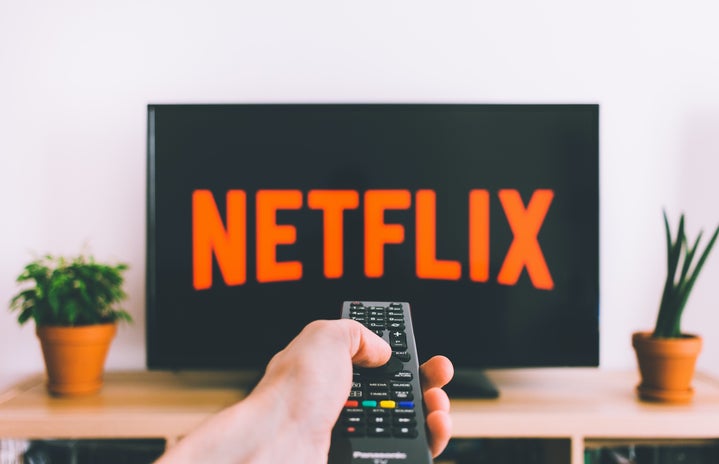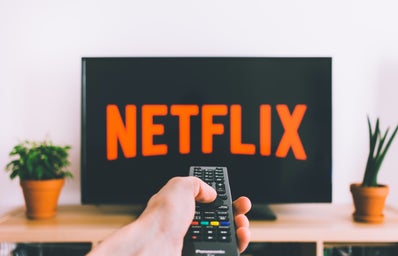*Spoilers ahead*
You’ve probably heard of it by now because everyone seems to be talking and having heated debates about it: the new Netflix sensation, ‘Emily in Paris’, a series following a woman in her mid-twenties from Chicago who moves to Paris for work. The series was produced by Darren Star, the mind behind ‘Sex and the City’. The opinions on this series couldn’t be more mixed; on the one hand, this series is accumulating an increased number of fans, who are obsessed with Emily and all the other characters. On the other hand, ‘Emily in Paris’ has also been heavily criticized, particularly by French people, for being too unrealistic and picturing Paris in a too romanticized and clichéd way, which in a way, I agree with. Other people have also reproached this series to be anti-feminist. However, I think that it raises some important topics in relation to the feminism and gender equality
Here are 3 reasons why ‘Emily in Paris’ can be considered a somewhat feminist series:
The character of Sylvie, a feminist in hiding
Contrary to popular belief, I think that the character of Sylvie, the head of the Parisian marketing firm ‘Savoir’, and Emily’s boss, is what gives this series a feminist dimension. She is, in my view, the character who embodies the image of the strong woman the most. Granted, she does remind us very strongly of Miranda Priestly, the ‘dragon boss’ in ‘The Devil Wears Prada’.
First of all, she is extremely determined, knows exactly what she wants and rules over Savoir with an iron fist, which can come across as icy and tyrannic. However, if a man had those character traits, he would be seen as a strong and successful leader, but since women are expected to always be kind and gentle, we are conditioned to think that women such as Sylvie are dragons. In my opinion, she is the opposite: she does give Emily compliments when she does a good job. For instance, in episode four, after having contributed to the signing of a deal between Savoir and a client, Sylvie turned to Emily and said: “Emily, I have to say that you did a good job today”. So, she is indeed, not the ‘friend’ type of boss, but at least everyone knows where they stand. This of course overlaps with the cultural differences between the Americans and the French portrayed in the show, the former being more open and warm and the latter being slightly more cold and reserved.
In addition, Sylvie contributes to the raising of an important question in episode three, entitled ‘Sexy or Sexist?’ about the position of men and women. When Emily criticizes a perfume commercial where a woman walks naked across a bridge under the gaze of three men, Sylvie tells her: “I don’t have such a simplistic way of seeing men and women”. She is convinced that, through the male gaze, women acquire power and sexual liberation.
In conclusion, despite her strong statement “I’m a women but I’m not a feminist”, I think she’s the one who embodies feminism the most!

This series normalizes the fact that women can be sexually free
Throughout the series, Emily has liaisons with numerous different men; from work colleagues, to her gorgeous downstairs neighbour Gabriel. One could indeed criticize this aspect of the series and claim that it lacks realism, since it is indeed unlikely to have this many affairs in this little time. However, on the other hand, it raises an important point which is that it is ok, as a woman, to be sexually free and have casual affairs.
Often, in series or in the media in general, women and men are not treated equally in regards to sexuality and how the latter is lived out; usually, a very libertine lifestyle of a man tends to be glorified, whilst if a woman acts in the same way, she will be shamed. This is not the case in ‘Emily in Paris’; she at no point is shamed for kissing, or sleeping with a lot of different men. Indeed, her behaviour isn’t glorified either, instead it is simply not discussed. This has probably been made in order to accentuate the fact that the French are infidels, flirts and just have more sex in general. Yet, I also very firmly believe that it implicitly encourages female empowerment.
Another example for this is the character of Gabriel; one thing that I find refreshing and nice about him is the fact that he doesn’t judge her in the slightest for the fact that she has liaisons with other men and that he still sleeps with her despite it. This is totally contrary to the attitude of several men, who consider a woman less valuable, or worse, as a ‘whore’, if she has had more partners.
‘Emily in Paris’ implicitly denounces toxic masculinity
This might be a less obvious point, but I think that through certain characters, ‘Emily in Paris’ manages to convey a message that denounces toxic masculinity. This is done in two different ways; by introducing us to characters that are supposed to embody so-called ‘modern masculinity’ and, on the contrary, characters that are willingly extremely sexist in order to criticise the patriarchy ‘from the inside’.
The character that embodies modern masculinity in many aspects is Gabriel. As mentioned previously, he doesn’t judge or shame Emily for having had numerous different partners before him, which isn’t self-evident in a society where toxic masculinity still prevails. In addition, Gabriel, to Emily, shows his emotions very openly and doesn’t try to hide them. In quite a few scenes, especially towards the end when we find out that he is going to move to Normandy to open his own restaurant, we can clearly see that he has cried. The fact that he shows himself in such a vulnerable position goes against the traditional gender roles, where it is expected of a man to always be tough and therefore never cry or show emotion.
On the contrary, the character that embodies toxic masculinity, in my view, is the character of Thomas, a university professor Emily meets whilst having dinner at the famous ‘Café de Flore’ and sleeps with the same night. As well as undeniably being a total snob, he is also implicitly very sexist. From the moment they met, he belittles Emily, by giving her the feeling that he is more intelligent than she is, and in some situations, reducing her to her body or appearance in general. I thought it was interesting to have him as a contrast to Gabriel because the latter made his misogyny stand out even more.
In conclusion, I think ‘Emily in Paris’ can be considered as having feminist aspects because it addresses numerous important topics such as objectification, sexism, misogyny and toxic masculinity. In addition, through certain characters such as Sylvie or even Emily, it portrays strong women who defy societal conventions.
However, as is said in the series,“it is open to interpretation”. In other words, this is my subjective opinion on the matter. Moreover, in this article I put everything in a feminist light. I am also aware that there are certain elements that are not particularly feminist which can be criticized.
Furthermore, one thing ‘Emily in Paris’ has shown is how much one’s cultural background influences one’s interpretation of feminism and the role of man and women. The episode ‘Sexy or Sexist’ is the perfect example for this. Therefore, I think it is important to emphasize that there isn’t any right or wrong when it comes to these topics.



